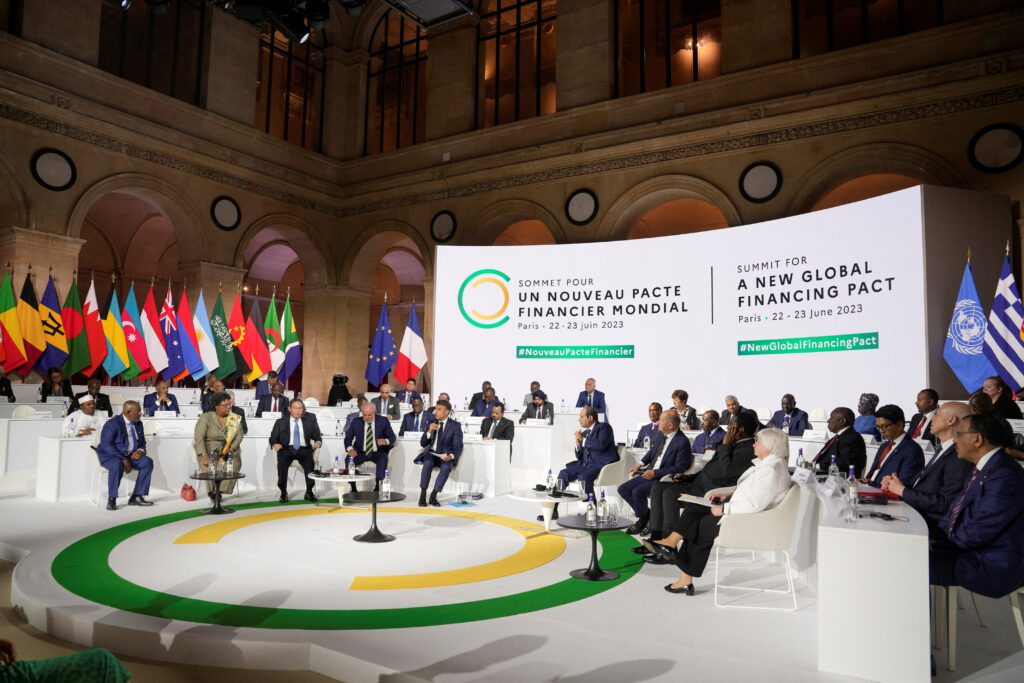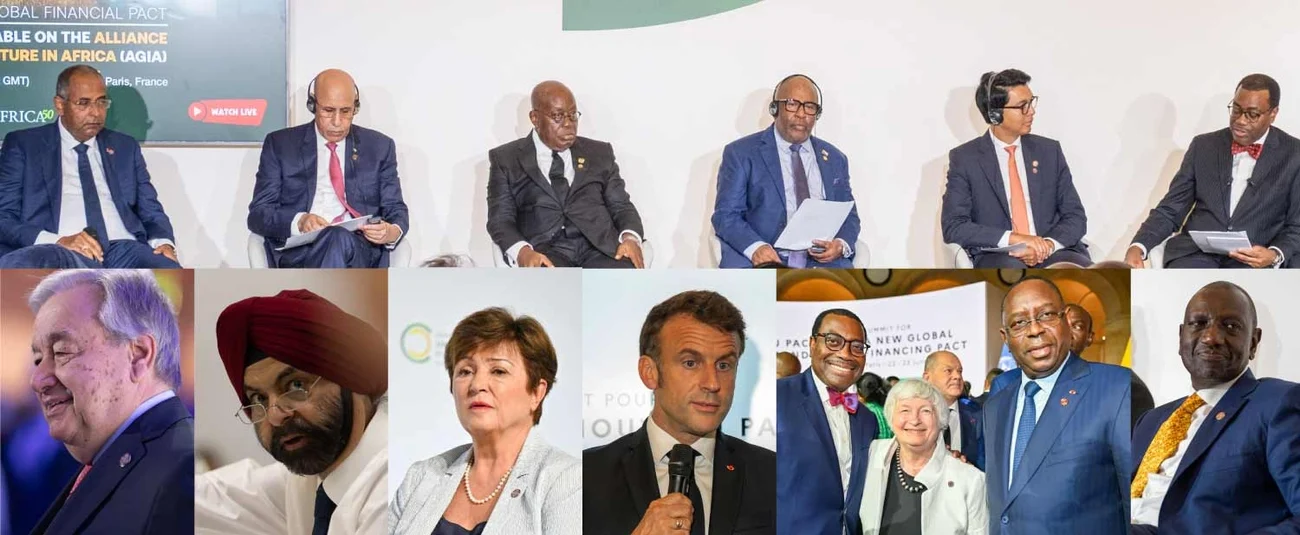…navigating economic challenges and financing strategies
By Senator Iroegbu
Climate change has emerged as a central topic in policy discussions, gaining prominence since the discovery of ozone layer depletion and the landmark Rio Earth Summit in 1992. While the global focus has primarily revolved around collective efforts to limit and ultimately eliminate carbon emissions, an undeniable truth has come to light: this pursuit comes at a substantial economic cost.
In the realm of climate change policy, economic considerations play a pivotal role in determining the success or failure of various agreements, pacts, and action plans forged at the Conferences of the Parties to the UN Framework Convention on Climate Change (COP). These economic considerations encompass four dominant strands, each carrying its own implications and ramifications in the context of climate change.
The first strand is rooted in the politics and policies of developed countries, where the focus lies on budgetary allocations and the opportunity costs associated with climate change financing. For emerging economies, the second strand centres on the economic consequences of forgoing more affordable fossil-based resources and the potential setbacks to industrialisation efforts. In the industrialised world, the third strand delves into the financial requirements of transitioning to green energy and building sustainable economies while maintaining a steadfast commitment to zero-carbon emissions. Lastly, the fourth strand, primarily representing the global south, underscores the vulnerabilities and constraints imposed by debt service burdens, with calls for debt forgiveness and cancellation to fulfill zero-carbon emission commitments.
The financial aspect of climate change is a critical facet, demanding substantial commitments. However, a contentious dichotomy persists regarding the distribution of responsibility between the industrialised West and the emerging economies of the global South. While developed nations acknowledge their historical burden and responsibility, conflicting demands arise from the developing world, including major industrialising nations such as China and India.
Moreover, domestic political dynamics significantly shape the progress of climate change financing, as opposition from climate change skeptics in both the global north and south often hampers the implementation of supportive policies. A stark example of this opposition was witnessed when President Donald Trump, seeking to appease his base, withdrew the United States from the Paris Climate Accord, jeopardising global climate targets.
Nevertheless, there is an encouraging trend towards global consensus on climate change mitigation financing, particularly with the active engagement of the Joe Biden administration in the United States. At present, France is hosting the “New Global Financing Pact Summit” in Paris on June 22 and 23, 2023. This crucial summit serves as a follow-up to COP27 held in Sharm-el Sheik, Egypt, and sets the stage for COP28 to be held in Dubai, United Arab Emirates later this year. The summit aims to facilitate global financial reform in order to meet the estimated trillions of euros needed to combat climate change effectively, coinciding with ongoing transformations in major financial institutions such as the World Bank and International Monetary Fund (IMF).

Beyond financial considerations, the economic toll of climate change manifests in the form of natural disasters experienced worldwide, including droughts, rising sea levels, floods, water scarcity, food insecurity, and conflicts. Nigeria, in particular, has been deeply affected by devastating flooding in recent years, resulting in significant economic losses, loss of life, damage to property, and ecological degradation. The adverse impact on small and medium-scale farmers across affected states has led to acute food shortages and disruptions in transportation networks.
Moreover, the cost implications of transitioning to a green economy diverge between developing and developed nations. Developing countries often grapple with concerns over revenue loss stemming from the abandonment of fossil fuel resources, while developed nations allocate more resources towards the development and implementation of new technologies. However, a glimmer of hope emerges in the concept of a circular economy, which offers a cost-effective, profitable, and environmentally-friendly solution that can be embraced by nations irrespective of their economic status.
Lastly, the issue of debt challenges looms large in the realm of climate change financing, particularly for many emerging economies in the global south. This pressing concern took centre stage during the discussions at COP27 in Sharm-el Sheik, Egypt. The debate surrounding debt forgiveness for vulnerable countries gained significant traction, although divergent views persist. Some argue for debt cancellation as a means to facilitate effective participation in climate change financing, while others advocate for increased funding and commitment from wealthy nations.
As the world grapples with the complex political and economic dimensions of climate change, it becomes increasingly evident that concerted efforts are necessary to navigate these challenges. The urgency to address climate change demands a holistic approach that incorporates robust financing mechanisms, equitable burden-sharing, and innovative solutions to foster sustainable economies.
In the midst of this global landscape, the “Global Financing Pact Summit” hosted by France holds immense significance. With the participation of heads of state and government, representatives from international organisations, NGOs, and private partners, the summit serves as a platform to address the colossal financial requirements and respond to the imperatives of combating climate change while addressing the vulnerabilities faced by the most affected nations.
The road ahead in the political economy of climate change is undoubtedly arduous, but the increasing recognition of the economic implications, coupled with growing global consensus and concerted efforts, offers hope. By effectively managing climate change financing, addressing natural disasters, embracing the potential of a green economy, and confronting the challenges of debt, nations can work together to mitigate the effects of climate change, safeguard the environment, and build a sustainable future for generations to come.

